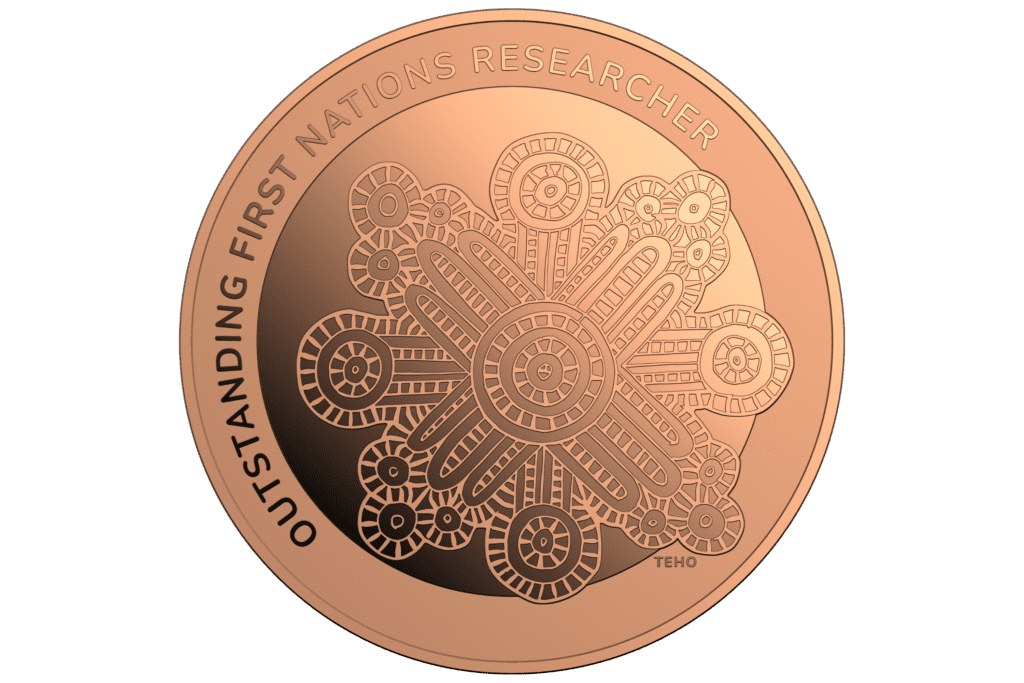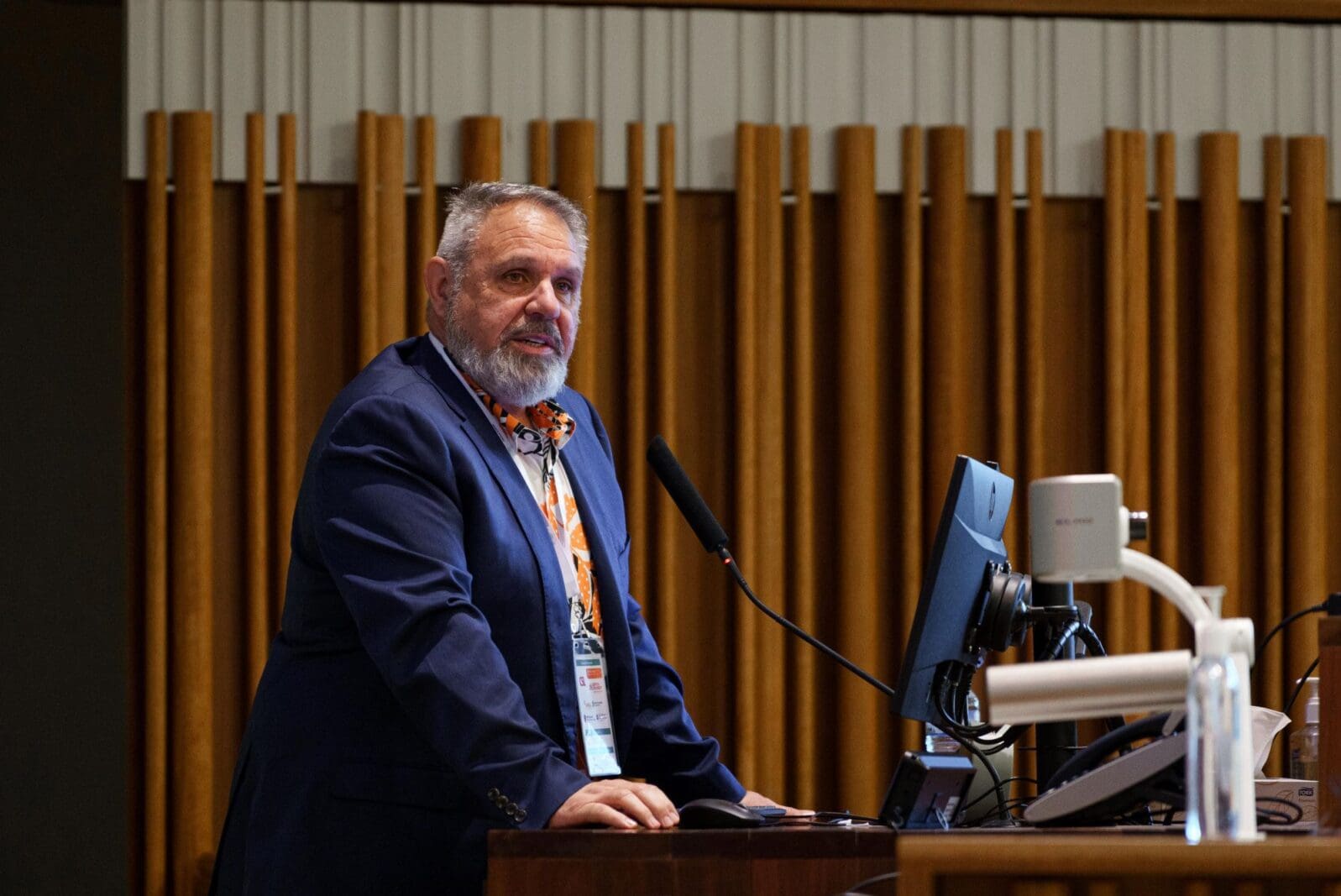A national health leader with a passion for improving the lives of Aboriginal and Torres Strait Islander peoples, particularly adolescents, is the inaugural winner of the Australian Academy of Health and Medical Sciences Outstanding First Nations Researcher Medal.
Professor James Ward FAHMS, a Pitjantjatjara and Narungga man, was awarded the medal in a ceremony in Adelaide this evening (24 October), at the Academy’s annual meeting.
Professor Ward, Director of The University of Queensland’s Poche Centre for Indigenous Health, has led groundbreaking work that has made a difference to adolescent health outcomes in the areas of sexual health, HIV, and alcohol and other drugs through programs, research, community-led interventions, and advocacy.
“Science is an exciting area to work in. I really thrive on discovery and being able to answer complex questions that many before me, haven’t been able to solve,” Professor Ward said.
“Each bit of research builds on the last bit. Even if we don’t hit that end goal, we are moving towards liberation from inequity.
“I really want to acknowledge that this award is not only an award for myself, but an award for all the people I work with. People who have supported me along the way and for all the communities who have been generous to enable me to work with them, hopefully this does them proud.”
Professor Ward said the award also was possible because “I’m standing on the shoulders of people who have paved the path for our people, some of who have been fighting a good fight for decades and some who have passed on.”
“Hopefully I’m doing those people proud. I’m hoping to carry on the legacy of those that have gone before us and those who are coming through,” he said.
Professor Ward has been working in health for more than 25 years, beginning as a men’s health educator in the remote communities of central Australia and completing a PhD in 2016.
His achievements include working with more than 80 Aboriginal community-controlled health services to build the ATLAS surveillance network, developing the Young Deadly Free Project, conducting several trials in STI control, delivering on a comprehensive health promotion program targeting remote and regional Aboriginal and Torres Strait Islander communities, and more recently development of an urban health research agenda for Indigenous peoples.
During 2020 and 2021 he was pivotal in guiding Australia’s COVID-19 response, particularly for Indigenous peoples.

“The last 20 years have all been a big buzz. I’ve had several changes in institutes over those two decades and each one brings new challenges and new opportunities at the same time,” Professor Ward said.
“I’m excited about the future, about the development of a new national First Nations urban research agenda, and a centre that might come along with that.
“That’s required due to the current rate of urbanisation of Aboriginal and Torres Strait Islander people that’s happening in this country and there needs to be policy with that.
“Hopefully one day our people will be liberated from inequity, and there will be no need for a health agenda for Aboriginal and Torres Strait Islander people.
“There’s so many opportunities in this country. There is so much work to be done, so many opportunities for Aboriginal and Torres Strait Islander people in science and in research to be able to make a genuine difference in communities.”
The award was developed with the generous support of the Gandevia Foundation.

AAHMS Fellow Professor Simon Gandevia said that historically, the scientific accomplishments of First Nations people had been minimised and undervalued, and they face more barriers to success.
“I believe it is incredibly important to acknowledge and celebrate the scientific achievements of the world’s oldest continuous culture, and this award is one tangible way to do that,” Professor Gandevia said.
“Professor Ward is a fantastic and well-deserved recipient, who has made unparalleled contributions to Indigenous health. He is truly a leader in his field.”
The award comes with a $10,000 travel grant, supported by Bellberry.
Bellberry CEO Kylie Sproston said the organisation was proud to support the medal.
“Professor Ward has an outstanding research career, and a long history of working in Aboriginal and Torres Strait Islander communities and building meaningful relationships in remote, rural and urban regions,” said Ms Sproston.
“We hope this travel grant can assist him in furthering his important work and look forward to seeing what he achieves next.”
The medal’s striking design, etched into bronze by the Royal Australian Mint, was created by Teho Ropeyarn, an artist and curator from Injinoo, Cape York Peninsula.
Nominations for the 2025 Outstanding First Nations Researcher Medal are now open. Visit the award website for more information.
Media: AAHMS Head of Media and Communication Katie Rowney, [email protected] or P: 07 3102 7212 M: +61 (0) 419 787 551

